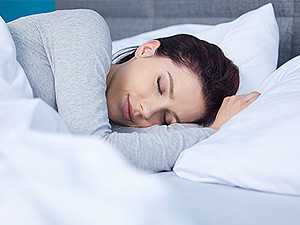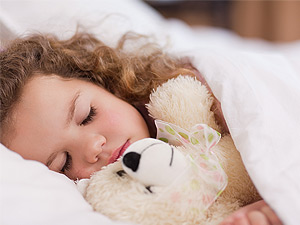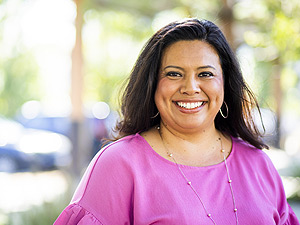Sleeping Fast Facts
Fast Facts About Good Sleep
What's the secret to good sleep? In general, try to build into your schedule time for eight hours of sleep each night, even on the weekends.
If you have trouble going to sleep or staying asleep, try these tips:
- Avoid caffeine, nicotine and alcohol in the late afternoon and evening. Caffeine and nicotine can delay your sleep, and alcohol may interrupt your sleep later in the night.
- Exercise regularly, but do so at least three hours before bedtime. A workout after that time may actually keep you awake because your body has not had a chance to cool down.
- Reserve your bed for sleep. Find other places to watch TV, listen to the radio or read.
- Don't nap during the day.
- Consider where you sleep. Make your room as pleasant, comfortable, dark and quiet as you can.
- Establish a regular, relaxing bedtime routine that will allow you to unwind. This will send a "signal" to your brain that it's time to sleep.
- Avoid exposure to bright lights before bedtime — including those from TV and electronic devices like computers and cellphones.
- Try taking a hot bath before bedtime.
- If you can't go to sleep after 30 minutes, get up and involve yourself in a relaxing activity. Listen to soothing music or read until you feel sleepy. Remember: Try to clear your mind. Don't use this time to solve daily problems.
What is the difference between in-center and at-home sleep testing?
An in-center test will occur at a hospital or free-standing sleep center and is administered by a sleep technician. A technician will over see the patients throughout the night and make adjustments as needed to ensure the best results. In addition, in-center tests can provide more detailed patient monitoring and can capture the patient’s brainwaves, leg motion, heart rate and oxygen saturation.
An at-home sleep test, also known as an HST, can take place in a patient's home. The patient receives the device and training on how to use the equipment prior to the testing date. There is minimal equipment involved in this type of testing. After the test, the device may either be returned to the center or disposed of, depending on the type of equipment; your technician will advise you of these details.
What are the advantages of an in-center test?
-
Detail – the thoroughness of the sensors that are used during an overnight test can detect a variety of sleep disorders ranging from obstructive sleep apnea, narcolepsy, periodic limb movement disorder and central sleep apnea.
- Accuracy –The presence of a certified sleep technician and additional sensors ensure that you get all of the data needed for the most accurate results
- Comprehensiveness – In-center tests detect all types of sleep disorders and can monitor patients of all ages
What are the advantages of an at-home test?
- Comfort – taking the test in your home allows you to sleep in a familiar environment. You can go to sleep at your usual time, and if you wake in the middle of the night you do not need to remove the equipment.
- Accessibility – HSTs are great for home-bound patients or those with certain illnesses. It is also convenient for many, as the center may not be close to your home or work.
- Cost – Not only is the cost lower for HSTs, but many are also covered by insurances, as long as there are no significant medical issues and the patient is suspected to have mild to moderate sleep apnea. (Coverage is determined by insurance plans)
Please note all coverage is ultimately determined by your insurance plan.
How do I know which is best for me?
A home sleep study may be a great option for patients with mild to moderate sleep apnea and no other significant medical issues.
There are some conditions where you will need to be tested in the center vs HST.
- If you are under 18 in age
- You have moderate to severe pulmonary disease
- You have congestive heart failure
- Your doctor suspects or you have a history of narcolepsy, insomnia, circadian rhythm disorder, or parasomnias as sleep walking
How do I pick up my at-home equipment
A certified sleep technician will meet with you prior to your study to provide you the equipment and provide an overview of how to use the device.
All Home Sleep Test Devices will be picked up at:
440 Merrick Road
Oceanside NY 11572
Do you have a sleep disorder? Contact Us:
Mount Sinai South Nassau Center for Sleep Wellness
1420 Broadway
Hewlett, NY 11557
(516) 374-8830
Learn More
Hear from our patients
How to prepare your child for a sleep study
Fast facts about good sleep
Would you like us to contact you about a sleep study or evaluation?

Sleeping Fast Facts
What's the secret to good sleep? In general, try to build into your schedule time for eight hours of sleep each night,...
Read More

Pediatric Sleep Medicine
At South Nassau’s Center for Sleep Medicine, we utilize the same tests used to diagnose...
Read More

Testimonials
Below are comments from just a few patients and parents who have relied on the expert staff at the...
Read More